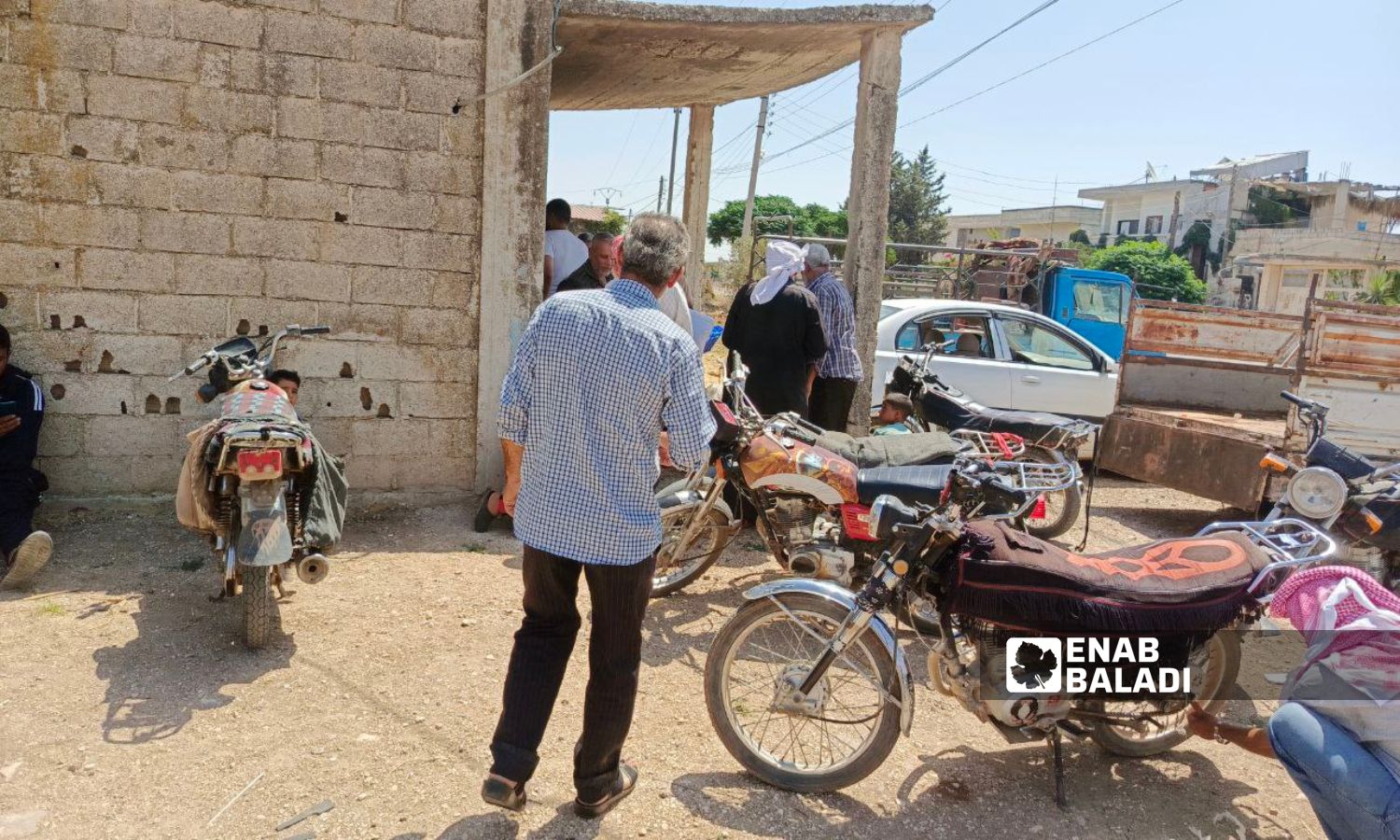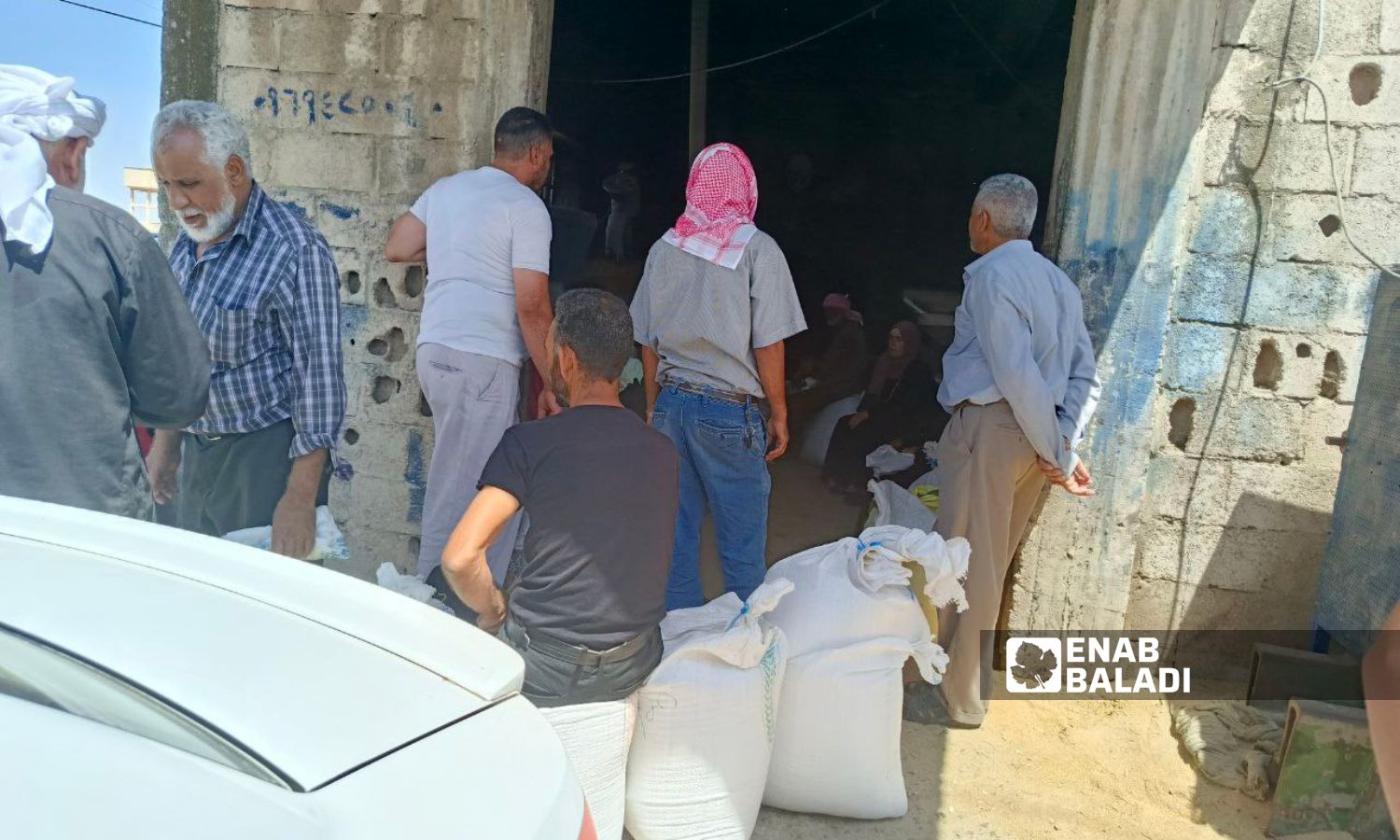



Daraa – Halim Muhammad
Mills have doubled the fees for grinding bulgur this year in Daraa province, southern Syria, due to the high cost of diesel, maintenance expenses, and workers’ wages.
The fee for grinding a kilogram of bulgur has reached 1000 Syrian pounds compared to 500 Syrian pounds during the storage season in the summer of 2023.
Similarly, the fee for grinding a kilogram of wheat into flour has increased to 2500 Syrian pounds, compared to 1500 Syrian pounds last season.
Hala Mohammed (55 years old), a resident of western rural Daraa, paid 50,000 Syrian pounds (3.42 USD) for grinding 50 kilograms of wheat.
She said that she cut this amount from the sale price of their wheat crop to the General Corporation for Grains last June, as her family planted one hectare of wheat.
Mohammed allocated 50 kilograms of the produced wheat for bulgur storage and sold the remaining amount to the grains corporation at 5200 Syrian pounds per kilogram.
She considers bulgur an essential staple that can’t be done without, and it is also used in making “Melehi,” one of the most popular dishes in Daraa.
She added that the process of making bulgur involves several stages, starting with soaking the wheat in water to remove adhered dirt and chaff, which float to the surface, followed by boiling it.
Mohammed relies on a wood-burning stove made from pruned pomegranate and cypress trees due to the high price of gas, with the gas cylinder reaching 350,000 Syrian pounds (23.9 USD).
Some families have doubled their bulgur quantities, relying on it for feasts instead of rice, which has seen a gradual rise in price.
Yasmin (38 years old), residing in the town of Tel Shihab in western rural Daraa, said she doubled her bulgur quantities last year and this year because the family’s consumption of bulgur has increased due to the rise in rice prices.
She added that her family of eight stored approximately 40 kilograms of bulgur in 2023, and they consumed the entire amount.
Previously, Yasmin’s bulgur storage did not exceed 30 kilograms.
The price of a kilogram of long-grain rice has reached 36,000 Syrian pounds (2.46 USD), and short-grain rice has reached 20,000 Syrian pounds per kilogram.

A crowd of people in western rural Daraa in front of the bulgur mill – August 22, 2024 (Enab Baladi/Halim Muhammad)
Mahmoud (55 years old), a mill owner in western rural Daraa, attributed the increased fees for grinding bulgur and wheat to the rise in diesel prices primarily.
The price of a liter of diesel in the local market has reached 16,000 Syrian pounds (approximately one USD) compared to 8,000 Syrian pounds in the summer of 2023.
Mahmoud relies on a diesel engine that requires six liters for each hour of operation.
Although diesel is a primary factor in raising fees, worker wages also play a role. His mill requires two workers, each earning 50,000 Syrian pounds per day, compared to 20,000 Syrian pounds last year.
Additionally, maintenance and diesel engine repair costs have increased, with the price of a liter of oil reaching 55,000 Syrian pounds.
One US dollar is equivalent to 15,000 Syrian pounds, according to the S-P Today website, specializing in exchange rates.
if you think the article contain wrong information or you have additional details Send Correction